

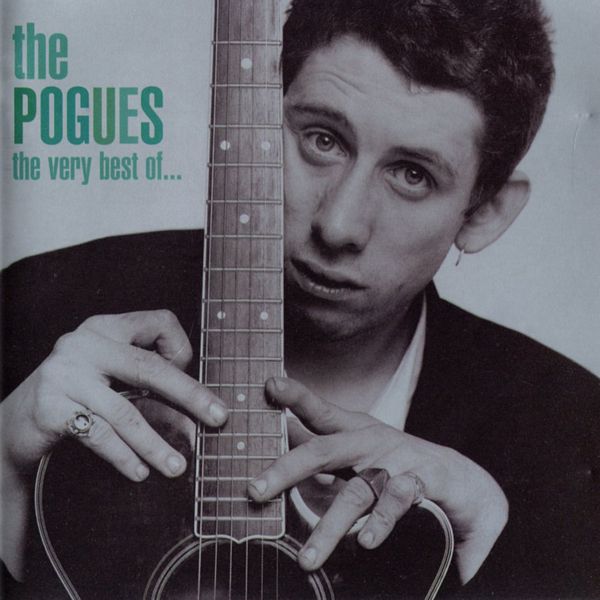
|
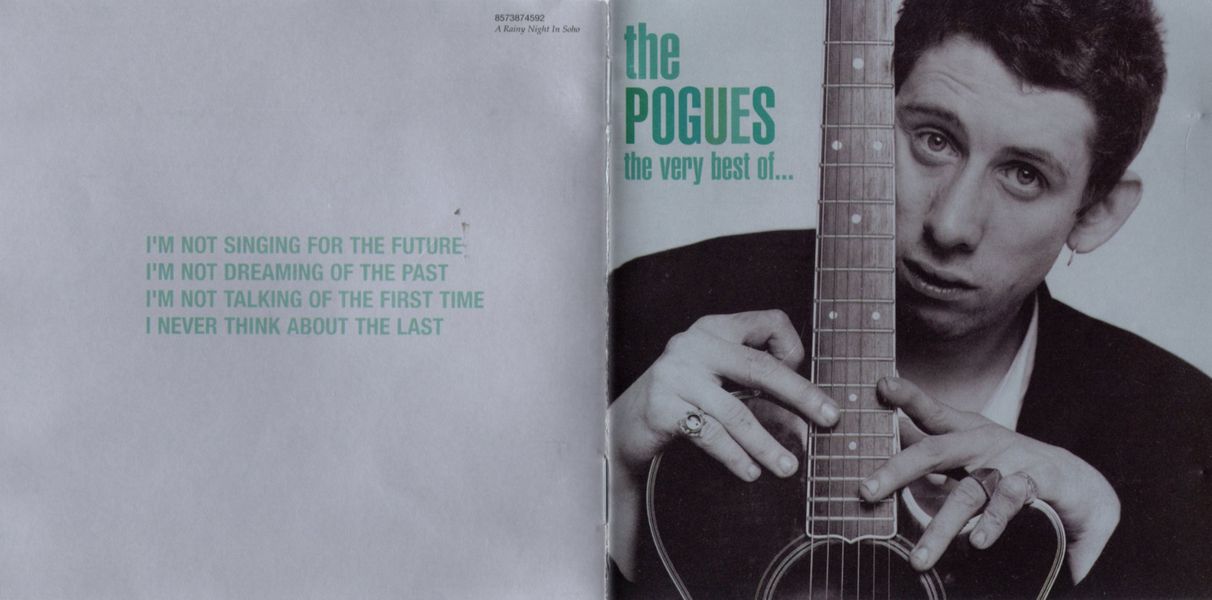
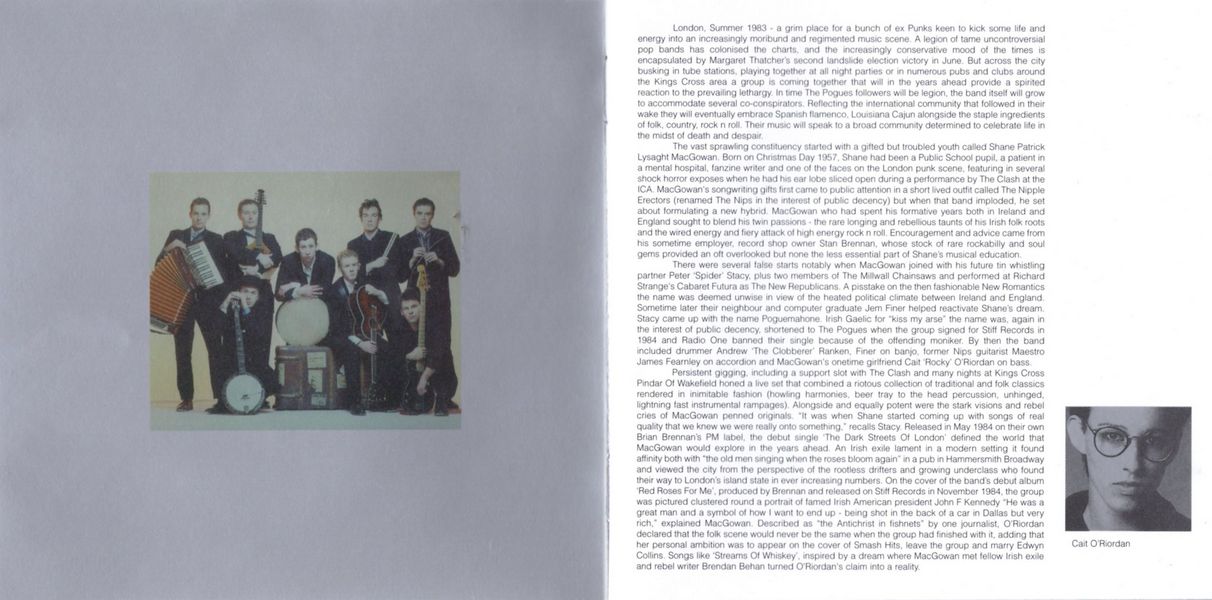 |

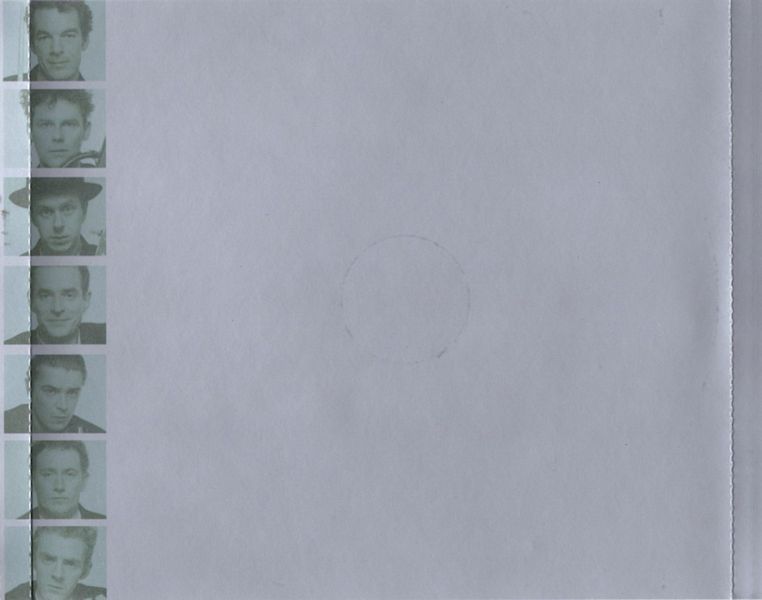
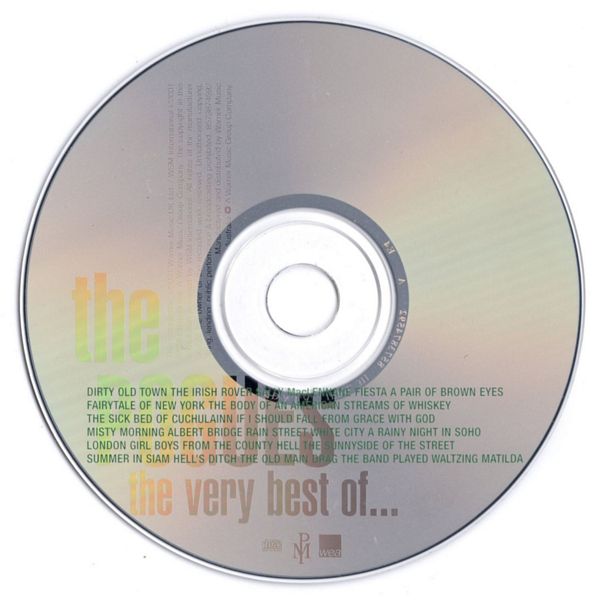 |
| more images |
London, Summer 1983 — a grim place for a bunch of ex Punks keen to kick some life and energy into an increasingly moribund and regimented music scene. A legion of tame uncontroversial pop bands has colonised the charts, and the increasingly conservative mood of the times is encapsulated by Margaret Thatcher's second landslide election victory in June. But across the city busking in tube stations, playing together at all night parties or in numerous pubs and clubs around the Kings Cross area a group is coming together that will in the years ahead provide a spirited reaction to the prevailing lethargy. In time The Pogues followers will be legion, the band itself will grow to accommodate several co-conspirators. Reflecting the international community that followed in their wake they will eventually embrace Spanish flamenco, Louisiana Cajun alongside the staple ingredients of folk, country, rock n roll. Their music will speak to a broad community determined to celebrate life in the midst of death and despair.
The vast sprawling constituency started with a gifted but troubled youth called Shane Patrick Lysaght MacGowan. Born on Christmas Day 1957, Shane had been a Public School pupil, a patient in a mental hospital, fanzine writer and one of the faces on the London punk scene, featuring in several shock horror exposes when he had his ear lobe sliced open during a performance by The Clash at the ICA. MacGowan's songwriting gifts first came to public attention in a short lived outfit called The Nipple Erectors (renamed The Nips in the interest of public decency) but when that band imploded, he set about formulating a new hybrid. MacGowan who had spent his formative years both in Ireland and England sought to blend his twin passions — the rare longing and rebellious taunts of his Irish folk roots and the wired energy and fiery attack of high energy rock n roll. Encouragement and advice came from his sometime employer, record shop owner Stan Brennan, whose stock of rare rockabilly and soul gems provided an oft overlooked but none the less essential part of Shane's musical education.
There were several false starts notably when MacGowan joined with his future tin whistling partner Peter 'Spider' Stacy, plus two members of The Millwall Chainsaws and performed at Richard Strange's Cabaret Futura as The New Republicans. A pisstake on the then fashionable New Romantics the name was deemed unwise in view of the heated political climate between Ireland and England. Sometime later their neighbour and computer graduate Jem Finer helped reactivate Shane's dream. Stacy came up with the name Poguemahone Irish Gaelic for "kiss my arse" the name was, again in the interest of public decency, shortened to The Pogues when the group signed for Stiff Records in 1984 and Radio One banned their single because of the offending moniker. By then the band included drummer Andrew 'The Clobberer' Ranken, Finer on banjo, former Nips guitarist Maestro James Fearnley on accordion and MacGowan's onetime girlfriend Cait 'Rocky' O'Riordan on bass
Persistent gigging, including a support slot with The Clash and many nights at Kings Cross Pindar Of Wakefield honed a live set that combined a riotous collection of traditional and folk classics rendered in inimitable fashion (howling harmonies, beer tray to the head percussion, unhinged, lightning fast instrumental rampages). Alongside and equally potent were the stark visions and rebel cries of MacGowan penned originals. "It was when Shane started coming up with songs of real quality that we knew we were really onto something." recalls Stacy. Released in May 1984 on their own Brian Brennan's PM label, the debut single 'The Dark Streets Of London' defined the world that MacGowan would explore in the years ahead. An Irish exile lament in a modern setting it found affinity both with "the old men singing when the roses bloom again" in a pub in Hammersmith Broadway and viewed the city from the perspective of the rootless drifters and growing underclass who found their way to London's island state in ever increasing numbers. On the cover of the band's debut album 'Red Roses For Me', produced by Brennan and released on Stiff Records in November 1984, the group was pictured clustered round a portrait of famed Irish American president John F Kennedy. "He was a great man and a symbol of how I want to end up — being shot in the back of a car in Dallas but very rich," explained MacGowan. Described as "the Antichrist in fishnets" by one journalist, O'Riordan declared that the folk scene would never be the same when the group had finished with it, adding that her personal ambition was to appear on the cover of Smash Hits, leave the group and marry Edwyn Collins. Songs like 'Streams Of Whiskey', inspired by a dream where MacGowan met fellow Irish exile and rebel writer Brendan Behan turned O'Riordan's claim into a reality.
Another album track 'Boys From The County Hell' had already assumed anthemic proportions MacGowan's catchphrase — 'lend me ten pounds and I'll buy you a drink' — provided the hook but with its blood curdling Spaghetti Western riffs uncovered a world of treachery, violence and mayhem. When some questioned on the spit, cough, splutter 'authenticity' of the group's Irish roots. MacGowan's reaction was righteously inflamed: "None of that matters. If you don't live in Ireland living in Hammersmith or North London is the next best thing you hear the same sort of music in the bars If anyone thinks we are playing pure Irish music then they are way, way off. we've got far too much respect for people like Seamus Ennis to try to play like he does. We play stuff we like and know that what we play tends to be drinking songs from the country and Irish pubs of North London", but there was rare a depth to MacGowan's drinking songs.
His cold precise observation and ear for a deathly entrancing melody were set in sharp new focus in April 1985 with the release of the magnificent 'A Pair of Brown Eyes'. A vision of hell in the midst of life the song has two narrators, an ageless war veteran unable to obliterate the memory of "blood and death beneath the screaming sky", and a young man thinking of his young love far away who recoils from the tale of doom and of horror that his drinking companion lays before him. "Shane played it to us at rehearsal and we knew right away it was a beautiful song. It's an immediately familiar scene — an old man in a pub, and it all gets very messy, but he could do so much with it. I think the same old man turns up in the drunk tank in 'Fairytale of New York'," says Stacy. Christy Moore, one of MacGowan's childhood Irish heroes, paid him the ultimate tribute by covering the song a short time after. "More than any writer I've heard, his lyrics bring me to a place that I know. I love his work dearly," enthused Moore, "he is a man of raw emotion and understated pain that comes crawling out of his lyrics like the madness crawling out of a mountain." These qualities were there in abundance in The Pogues.
Elvis Costello produced their second album Rum Sodomy And The Lash' The title was taken from Winston Churchill's description of life in the Royal Navy, and the album marked the arrival of a new guitarist Philip Chevron Formerly of Dublin's The Radiators, he had been drafted in as a replacement during Finer's maternity/patermty leave but became a fulltime member when MacGowan decided to forgo guitar playing Sally MacLennane' preceded the album, issued on a special edition Shamrock shaped single and charting in the UK at number 51. It was the groups highest placed single to date — a position which failed to reflect their increasingly rabid live following. MacGowan's grasp of history and ability to write songs that incorporated a sense of social justice along with the span of generations was evident in the album's devastating opening tracks The Sick bed Of Cuchulainn' and 'The Old Main Drag'.
The first is a defiant death bed rant from an exile returned to Ireland recalling the demons and drunken rampages that have hall marked his life. The Old Main Drag' is London's red light district, where a fresh faced young narrator new to the city becomes trapped, hooked on painkillers, beaten by police "spat on and shat on and raped and abused". The spare musical arrangement centered on Tommy Keane's mournful Uileann pipes made for one of MacGowan's most sombre yet darkly compelling songs. Additionally, the collective knack for choosing pungent and timeless songs to interpret reaped dividends in a crackling version of Ewan McColl's definitive look at urban drudgery, Dirty Old Town'. Shane had first heard the song performed by The Dubliners but The Pogues gave it contemporary edge. The snarling vocal and fierce arrangement making sense for listeners from Newcastle to New York and all points beyond and between. The album's epic closing track — a version of Australian Eric Bogle's Gallipoli-inspired anti war song And The Band Played Waltzing Matilda' — took on fresh relevance in the aftermath of the Falklands.
In January 1986 O'Riordan absconded on the group's first American tour, in May she married Elvis Costello and shortly after left to be replaced by roadcrew member Daryl Hunt. MacGowan, who made no secret of his love of a hedonistic lifestyle, spent a period in hospital after being hit by a Taxi cab, but there was no let up in output With the EP 'Poguetry In Motion' boasting the gorgeous ballad Rainy Night In Soho', 'The Body Of An American' and the rip roaring return to punkabilly roots London Girl' charting in the UK at number 29 in March. After show stealing performances at the Self Aid concert in Dublin in May and in Glastonbury in June they finished the summer in Spain's Sierra Nevada playing the caffeine addicted McMahon Gang in Alex Cox's surreal western 'Straight To Hell'. In 1987 they banded with The Dubliners and released Irish Rover' as part of the Irish veterans 25th Anniversary celebrations, and had their first UK Top 10 single, at number 8 in April. Terry Woods, a veteran Irish virtuoso and a founder member of Steeleye Span, was added to their already formidable lineup.
Notoriously hard to please, Ewan MacColl might not have liked the group's version of Dirty Old Town', but his daughter Kirsty was a huge fan and in December she joined the band to duet with MacGowan on 'Fairytale Of New York'. Held off the UK Christmas number one spot by The Pet Shop Boys Always On My Mind', the song written by MacGowan and Finer had originally been intended as a duet with O'Riordan two years previously "I had written two songs". Finer remembers, "one had a good tune and crap lyrics, the other had the idea for Fairytale but the tune was poxy. I gave them to Shane, he gave it a Broadway melody, and there it was. It's not the usual sort of festive record, but it's true to life, more people argue, get divorced and commit suicide at Christmas than any other time of the year."
The group's third and most successful album 'If I Should Fall from Grace With God', produced by Kirsty's then husband Steve Lillywhite and released in January, featured several songs inspired by time spent in Spain. Fiesta' paid tribute to a 4 day party maintained by the locals while the band was filming Straight To Hell', the title track honoured Civil War victims. "We were in the desert in land that is soaked in blood from people that fought to keep the place they were born", said MacGowan. "There's a feeling that just hits you in places like that, automatic writing. Like 'Rainy Night In Soho', it was written in 15 minutes" he said at the time. Feted by everyone from Springsteen to Jack Nicholson and from Faye Dunaway to Matt Dillon (the star of the 'Fairytale' video) The Pogues were now at their commercial peak. When Chevron got ill their show received an added blast with the addition of The Clash former frontman Joe Strummer On certain nights it seemed that there was no end to their energy and ability to embrace all comers. But of course their fearless work rate and capacity for drink and other recreational pursuits had limits. Although there were still great shows and songs to be recorded the sign that the band was beginning to unravel came when MacGowan missed a series of 10 shows with Bob Dylan on the West Coast of America in July 88. "He got better as soon as the Dylan shows were over I think he bottled if, recalls Stacy, "after that it just escalated."
The strain began to show on Peace And Love released in 1989, recorded in the middle of what seemed like a never ending tour. The Strummer produced Hell's Ditch', preceded by the 'Summer In Siam' single MacGowan's dual tribute to Sinatra and his newly found spiritual home in Thailand, was a return to form. Even so the title reflected the besieged feeling within the group camp. "Getting a performance out of Shane on that album was very difficult', says Stacy. "It wasn't long after that it all came to a head. We went to tour Australia, and it was a joke. Shane came with a consignment of bootleg downers and had to be carried offstage. I think he didn't want to do it anymore and didn't know how to say it, he felt responsible because many people were depending on him. But eventually, the whole thing became untenable." The split came in November 1991 though The Pogues carried on without MacGowan until 1996. In December 2000 Kirsty McColl was tragically killed in a boating accident while on holiday in Mexico.
Today the other members of the band are pursuing individual projects, but the memory of their time together still endures. "It was really hard work there was no let up, but I wasn't the one who was under pressure Shane was. it was unfair to expect him to keep doing it." says Stacy "But The Pogues with Shane were something I loved. I remember at certain times feeling we really were in the best band in the world. It was a sort of invincibility that stemmed from the quality of what we were playing and the way it was played. There were really great musicians like Terry Woods, and Andrew was a unique drummer. To watch James Fearnley, a guy who only started playing accordion in 1982, throwing the thing up in the air as if it were a basketball whilst simultaneously playing really intricate lines. It was a great feeling, a great thing to be part of." Indeed, and it's a feeling the music they left behind can still reignite.
Gavin Martin, London January 2001 (with thanks to Spider Stacy)